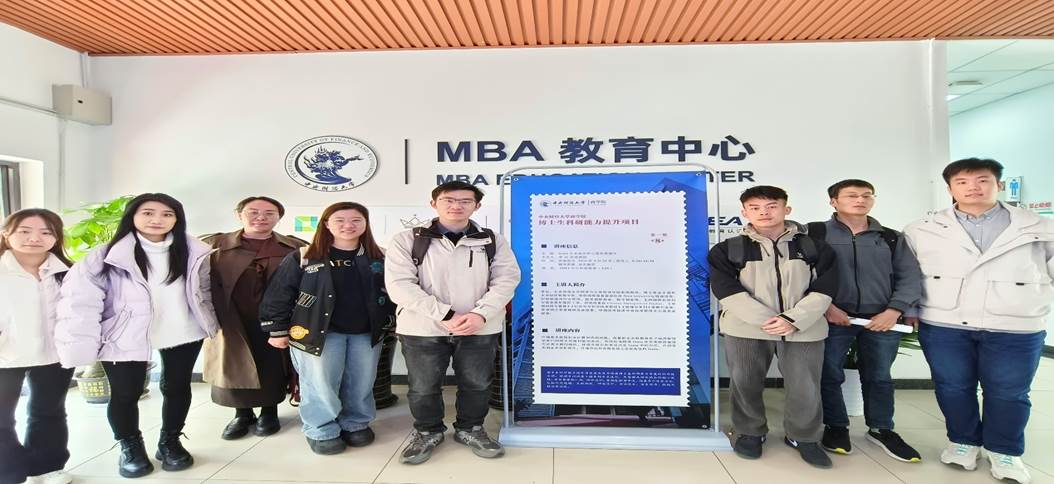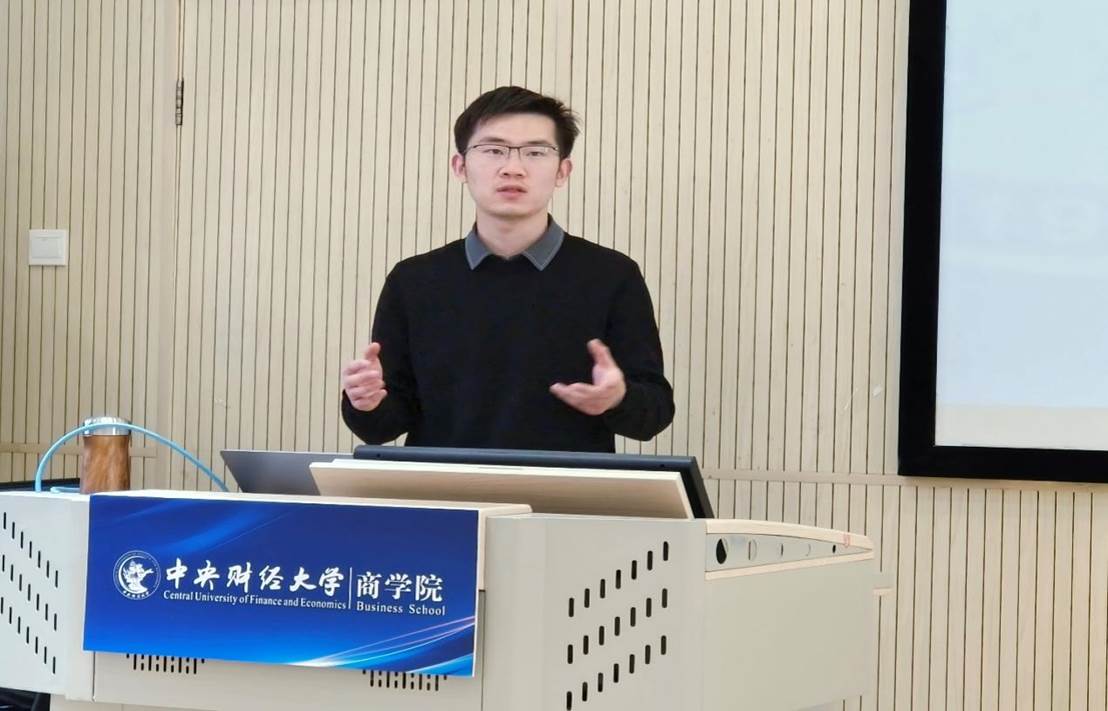Text Analysis and Server Operations in Stata: The Third Session of the Doctoral Students' Research Capability Enhancement Project at the Business School successfully Launched Its Sixth Lecture
On the morning of March 29, 2024, the Business School, Central University of Finance and Economics held the sixth lecture of the third session of the Doctoral Students' Research Capability Enhancement Project in the MBA Center's auditorium. This forum featured Assistant Professor Li Lun from the School of Economics and Business Administration, Beijing Normal University, who provided a detailed sharing on the application of Stata in text data processing and analysis. The majority of the doctoral students from the 2022 and 2023 grades attended the event. Associate Professor Dou Chao, Director of the Doctoral Program at the Business School, organized and prepared for this event. The Doctoral Students' Research Capability Enhancement Project is a special initiative by the Business School to enhance the research abilities of its doctoral students. The project is structured as a combination of “lectures + guidance,” encompassing all essential aspects of academic research. It operates on an annual basis, with each session comprising multiple lectures that cover various professional directions, including research topics, literature reviews, research design, methodologies, thesis writing, paper submission, and revision.

Group photo
The sixth lecture featured Dr. Li Lun, who is currently an assistant professor at the School of Economics and Business Administration, Beijing Normal University. He graduated from the School of Economics and Management, Tsinghua University, and was once awarded a scholarship by the China Scholarship Council to pursue joint training at Rice University. Assistant Professor Li Lun's research fields include entrepreneurial management, technology-based entrepreneurship and innovation, and digital innovation. He has been the principal investigator of one NSFC Youth Project. His research findings have been published in journals such as Chinese Management Studies, Foreign Economics & Management, Science of Science and Management of S&T, and Quarterly Journal of Management. He also serves as a director of the Chinese Institute of Business Administration and the Technology Management Committee of the Chinese Society of Technology Economics.

Keynote speaker
During the lecture, Assistant Professor Li Lun explained the importance of statistical analysis techniques in the context of big data and cloud computing, and systematically summarized the functions of Stata in text data processing and analysis. Specifically, starting with the software tools, Assistant Professor Li Lun introduced other software that can be used in combination with Stata, such as Python and Sublime, to the Ph.D. Students. This inspired the students to leverage research tools to enhance their academic studies. He also provided a detailed explanation of the important commands frequently used in Stata and demonstrated the specific operation process, which effectively helped the students improve their data analysis efficiency. Furthermore, Assistant Professor Li Lun combined real-world data examples to vividly demonstrate the specific applications of Stata in text analysis to the Ph.D. Students. He provided a detailed explanation of common string functions, regular expressions, and third-party commands. Moreover, Assistant Professor Li Lun also demonstrated how to install and use Stata on a server and introduced several common types of natural language processing techniques in the current context.
During this lecture, the keynote speaker, drawing on his own research experiences and tool usage expertise, shared advanced functions and techniques of Stata in handling text data. This provided a valuable learning opportunity for the participating Ph.D. students, not only helping them to utilize Stata software more proficiently in their research, but also effectively encouraging them to master critical skills in cutting-edge areas. During the final interactive session, the students present also communicated and exchanged ideas with the keynote speaker, discussing the application scenarios and operational methods of text data analysis in economic and business management. This event not only effectively inspired the Ph.D. students to make good use of software tools to improve their research efficiency, but also strongly guided the business students to master important natural language processing techniques to address the challenges and opportunities in the era of big data.
